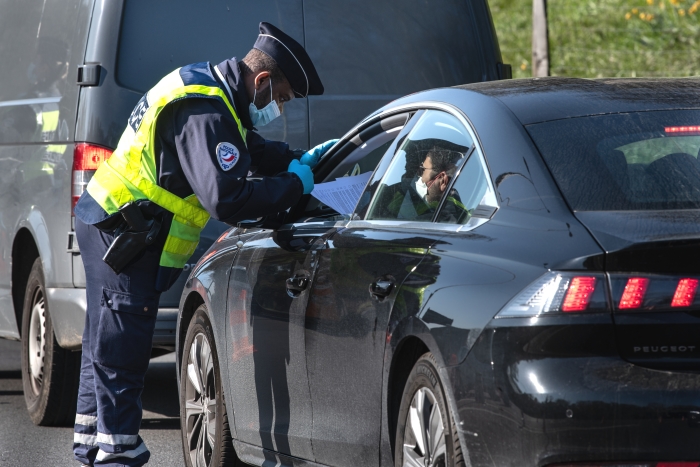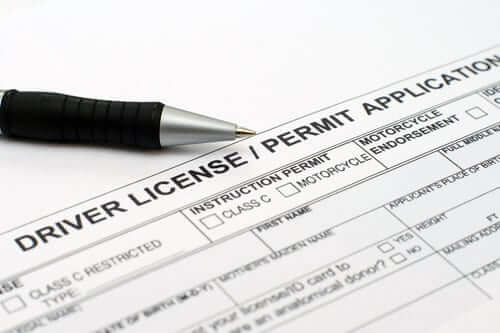
There are a few basic rules every Arizona driver should abide by: Follow the speed limit, wear your seatbelt, and most importantly, never drive without a valid license. Arizona driving laws explicitly state that you must have your driver’s license with you while operating a vehicle. Situations in which you may be cited for driving without your license include:
Depending on the context of your situation, driving without a license in AZ can result in some serious penalties and fines. Keep reading to discover the legal implications of an Arizona driver citation and how you can defend yourself.
According to Arizona Revised Statute § 28-3151, an individual must hold a valid driver’s license to operate a motor vehicle. If you’re an Arizona resident, your license must be issued by the Arizona Department of Transportation (ADOT). If you’re an out-of-state visitor, you must hold a valid license from your home state or country’s motor vehicle department (MVD).
Arizona driving laws require a driver’s license to correctly reflect your:
Your license must be in the vehicle with you at all times while you drive. If you’re pulled over or involved in an accident, failure to present a valid license is a traffic violation.
Your penalty for driving without a license will depend on whether you never received a license, or simply forgot your driver’s license at home.
Before dishing out a penalty for driving without a license, law enforcement personnel will run your information through their patrol car computer.
First, they’ll check the license plate of the vehicle you’re driving. This initial check confirms ownership of the vehicle and ensures it hasn’t been involved in any recent car accidents or traffic crimes. Next, the officer will attempt to locate your personal information in their database. This secondary check reveals if you hold a valid driver’s license.

If law enforcement can locate your license details in their database, you will receive a $120 fine for failing to have your license with you in your vehicle. You can choose to pay the fine or go to court to fight the charge. Typically, bringing proof that you possessed a valid license at the time you were pulled over is enough to dismiss your case and waive the fee.
If a police officer cannot locate your license details in their database, it’s because you do not have a valid driver’s license. In this case, you may be charged with a class 2 misdemeanor.
According to Arizona driving laws, a class 2 misdemeanor carries a maximum of four months jail time, a $750 fine (plus surcharges), and two years of probation. If this is your first offense, chances are you will not receive the maximum penalty. However, penalties may increase if you were engaged in reckless driving or charged with your second or third subsequent offense.
Arizona driver’s licenses don’t expire until you’re 65 years old, so driving with an expired license is generally an issue for seniors. However, you may also receive an expired license citation if you’re caught driving with an expired out-of-state license or even an expired permit. Much like driving without a license, the repercussions of driving with an expired license vary depending on your situation.
Driving with an expired license is technically a class 2 misdemeanor, which carries a maximum punishment of four months in jail, a $750 fine (plus surcharges), and two years of probation.

However, if you go to court and prove that failing to renew your license was an honest mistake, your charges are typically dropped to a minor infraction. If you’re from out-of-state and renew your license with your home state before your court date, you may also negotiate your charge down to an infraction. Most cases are lessened to a $120 traffic ticket.
Your license can be suspended or revoked for a variety of reasons. The most common reasons for suspension are due to dangerous driving behaviors, such as driving under the influence (DUI), aggressive or reckless driving, vehicular manslaughter, and excessive infractions on your driving record. Though, your license may also be revoked for driving without insurance, failing to pay a fine, or failing to appear in court. Driving with a suspended or revoked license runs a significant risk of extending your suspension period or losing your driving privileges altogether.
Driving with a suspended or revoked license is a class 1 misdemeanor, which is the most serious misdemeanor offense. If cited, you may face up to six months in jail, three years of probation, and a $2,500 fine (plus surcharges). Also, your vehicle may be impounded for 30 days.
If your license suspension or revocation was due to a DUI, you’ll likely face higher fees for your second offense. For instance, your probation period can extend from a three-year maximum to a five-year maximum. You can also be charged with a felony if you’re arrested for a DUI while driving on a suspended license, regardless of why the initial suspension occurred.
If you do not have a valid license, you must avoid driving until you reinstate or receive one. Not only can driving with a revoked or suspended license result in higher penalties, but you can permanently risk your driving privileges. If caught driving with a suspended or revoked license, the Motor Vehicle Division (MVD) can even extend your suspension period by an entire year.

Once you’re eligible to reinstate or receive your license, you must do so before driving. If you begin driving after your suspension period ends but before you receive your valid license, you’re violating the law each time you drive.
If your driver’s license has been suspended, you’ll need to complete your suspension period before you’re eligible for reinstatement. Next, contact the court listed on your suspension notice and pay all court penalties due. From there, you’ll receive a court clearance receipt or Court Abstract form that contains your:
You must bring your receipt or Abstract to any Arizona MVD driver license office and pay the application fee as well as a $10 reinstatement fee. If the department doesn’t have a recent digital photo of you on file, you must apply in-person. Otherwise, you may pay your fees online or through the mail. If failure to show up in court or pay a court fine was the reason for your suspension, you must first show up in court and/or pay your fine before the Arizona MVD will reinstate your license.
If your driver’s license has been revoked, you’ll need to complete your revocation period before you’re eligible for reinstatement. Then, you must complete and submit an investigation packet, which the MVD will review to determine your eligibility to reinstate. If approved, you will receive a Permission to Reapply Notice in the mail.
If your license was revoked due to alcohol-related or drug-related convictions, you must also obtain proof of your Future Financial Responsibility. Future Financial
Responsibility, also known as an “SR-22,” requires a Certificate of Insurance from any insurance company licensed to conduct business in Arizona or a certificate from the Arizona Office of Treasurer.

Bring both your SR-22 and Permission to Reapply Notice to any MVD or Authorized Third Party office. There you’ll fill out an application, pay the application fee, and pay a $20 reinstatement fee.
If you’re required to have an ignition interlock device installed, you must bring proof of installation before reinstatement.
Renewing or receiving your license for the first time is much simpler than reinstating your license. First, you must complete and submit an application to the MVD. If you’re a first-time license holder, you must pass both a written exam and a driving test. If you’re renewing an existing license, you only need to pass a vision test. After paying all application fees, simply renew your photo (if applicable) and you’re set to drive!
If you’ve been cited for driving without a license—either because yours was forgotten at home or had been suspended—don’t attempt to go to court alone. A strong defense lawyer with whom you have a solid attorney-client relationship can lessen or even drop your charge. When your driving privileges are at stake in Arizona, be sure to seek your free initial consultation with a quality law firm in the Phoenix, Scottsdale, and Mesa area.